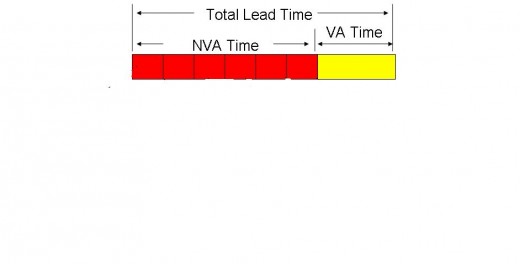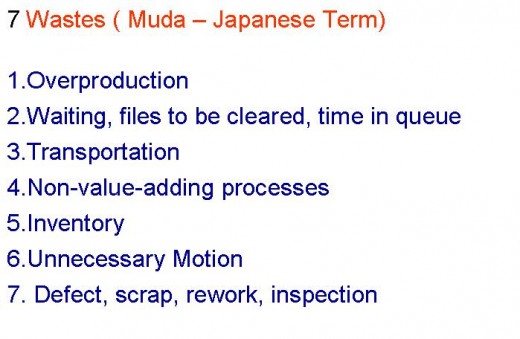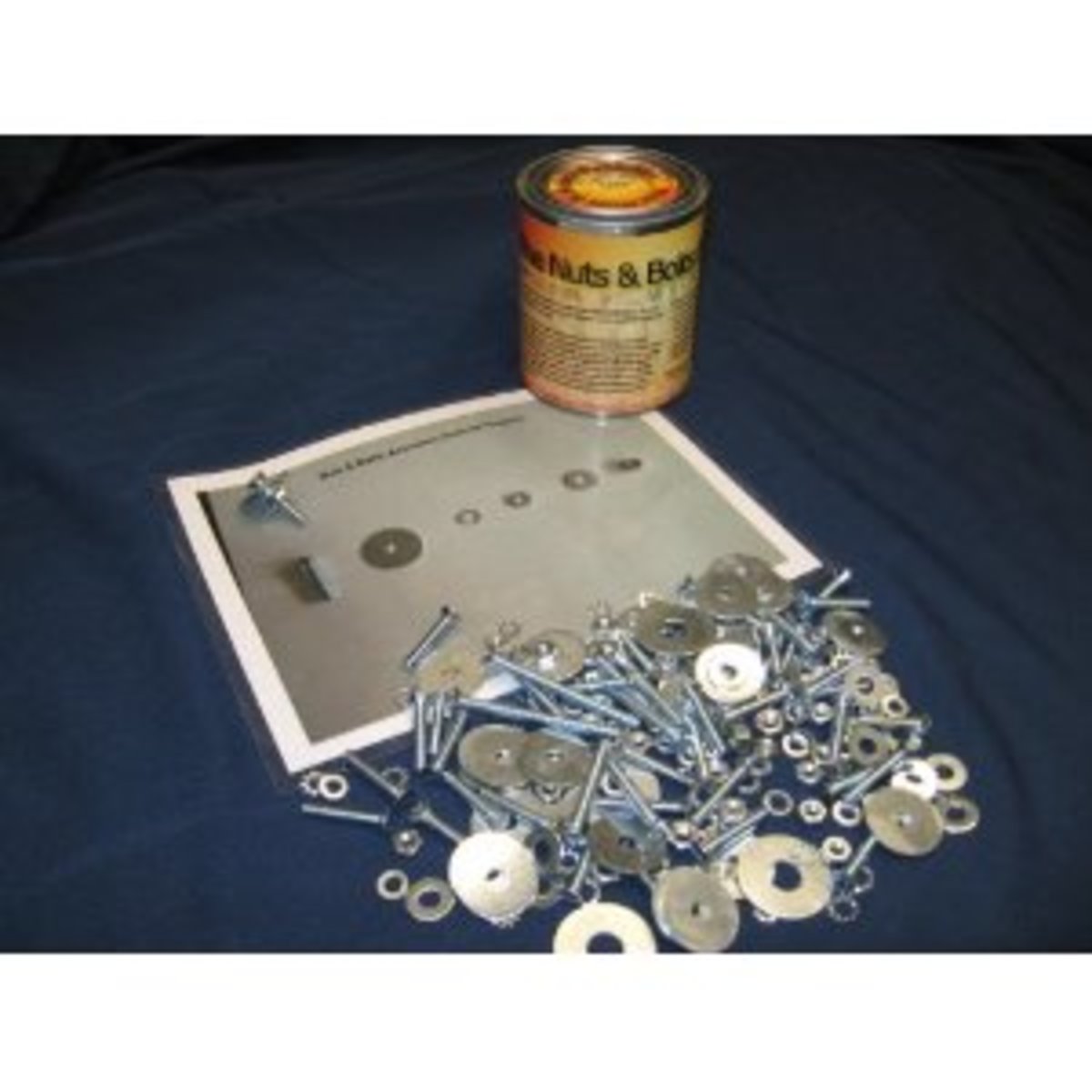- HubPages»
- Health»
- Quality of Life & Wellness»
- Personal Development
Lean Principles in personal life
Lead time - Value adding vs non value adding


Lean Principles for Personal Development
The art and science of Lean Manufacturing has been developed in the framework of Toyota Production Systems. The world is still trying to understand the concept. In recent times there has been a deluge of literature on Toyota Production Systems (TPS) and Lean Manufacturing. There are many names given to Lean Manufacturing or rather there are many facets of this phenomena. Some of the popular terms associated with Lean Manufacturing are Just-In-Time, Short Cycle Manufacturing, Single Piece Flow,Cellular Manufacturing, Demand Flow Manufacturing, Agile Manufacturing,Value Adding Manufacturing etc.
Value adding and Waste
It all sounds great in a manufacturing set up but how is the same applicable in Personal Life? The key is value adding and waste identification. It is interesting to note that out of the total lead time for a delivery, 95% time, is typically spent in non value adding activities, many of them are necessary. But the key is to strive continuously to reduce that.The basic tenet of Lean manufacturing is adding value by removing waste (Muda in Japanese). It is a game changing percpective where every activity is evaluated from the eyes of the customer who judges evry act as if he is the master of all operations where is product is being manufactured.
The 7 Mudas(Waste)
The 7 Mudas identified in Lean Manufacturing are Over Production, Inventory, Transportation, Extra Processing, Defects/Rework, Unnecessary Motion, Unnecessary waiting.
Determining Value Adding and Non Value Adding
The most important tool of lean is Value Stream Mapping where every step is evaluated w.r.t value adding vs non value adding ratio.There are many activities in the organizations which seem to be difficult in terms of evaluating value adding or non value adding. There is a simple method to to do this apparently tough classification. Imagine that customer is watching the activity which is to categorized under value adding or non value adding. He feels that the particular activity is not going to add any value to his product and decides not to pay the cost of that activity while paying for the product. It is a waste for sure. Let us say customer is watching a training program with the characteristics of an irrelevant topic, a demotivated speaker and withdrawn audience. Customer does not take much time that loading the cost of this particular activity on his product is unfair as it is a pure waste.
Relevance in Personal Life
In personal life we can reflect on a host of activities in terms of value adding and non value adding. It may happen that we have been performing many activities for years together and getting the intended value because we do not reflect on things happened in insightful manner. Let us take some examples.
Some Example from Personal Life of Value adding/non value adding
- Study of a child
Education of a child is perhaps the most common yet most important activity in every house hold which is given utmost importance. Are paying attention to the most important steps in the process, say value adding steps or are we distracted by some visible steps which are essentially waste as per Lean philosophy. As per Lean principles, getting ready for school and reaching school is a waste whereas obtaining knowledge in the class room is value adding. Most of the parents focus on preparing the child for school which includes dropping at bus stop or school itself and bringing back the child home. The attention is really missing on the value adding part i.e. the class room. We rarely try to understand the dynamics of the class room, how the child is coping in the class, whether he is busy taking notes or trying to understand the concepts. The Lean approach has the potential of improving the personal life in great manner. Normally all our attention is on the waste generating steps though they are necessary. We rarely give much thought on psychological processes responsible for gathering knowledge through class room teaching by the child. If we do not think we do not improve the process step.
- Dating Place
I had read one of the great names in Knowledge Management for his work on Community of Practice regarding choosing the right context for informal knowledge sharing communities. He had given the example of the dating of his parents who always or most of time chose some museums as the dating place which gave them peace, freedom and facilitated knowing each other in a better manner than going to a crowded restaurant. So let us again try to see the point, the value part of dating. Perhaps it is experiencing each other, sharing love and emotions, knowing better etc. Now with the value in mind we are better placed to choose the venue. Many a times we end up choosing a venue which has occupied a high position in our mind for different value proposition. Like we love a restaurant for its food and caring waiters. So if food experience and personal care is the value we are seeking, the restaurant is a good choice but if we are seeking value to delve deeper into each other, may be we need to look for a different kind of place.
All of us face that painful phenomena called waiting which such an integral part that it cannot be eliminated. Waiting for delayed flights, waiting for ordered food, waiting for picking up the child from school or waiting for your sweet heart when every second feels like an hour. If we see the waiting part of life through lean principles it is a sheer waste but cannot be avoided. But a lot of value can be added in this wasteful activity like planning something during this part i.e. music, crossword, just enjoying the freedom, using this as an opportunity for reflection or talking to self as how you are doing. One can see a hub on How to reduce the pain of waiting [http://garydube.hubpages.com/hub/How-to-reduce-the-pain-of-waiting]
Sources of Waste in Personal Life
- Over preparation
Many we times we realize that we have ended up over prepared. It may be a case of packing the bags for a travel or preparations for a party. The wastes at the end are glaring. It is really pitiable to see people carrying too much of of luggage to handle during the journey or a travel. All the time they look struggling with the volume of the luggage but it does not add intended value. So! Travel light and enjoy! Better reflect and change your approach! We host so many parties and in our being anxious of avoiding failures we end up miserably in terms of colossal waste. In the morning after the party we rest our head cupped in two hands and regret our planning in the face of sheer wastes.
- Inventory (Keep only that much which is really needed)
- Beware of the trap of Malls and Superstores
We have too many things we aquire for intended use and most likely we never use them. You can blame it on Malls and Super Stores who employ brilliant MBAs to ceaselessly plan to trap customers into buying much more than their true requirement.
- Buy small Quantities
The Lean philosophy says that buy only that much amount which is optimum. We need to strike a balance between frequent visits to grocery stores and excessive stacking of things in kitchen stores. The price rise factors etc. gets evened out over a long time period.
- Unnecessary Motion
Design of kitchen, living room and study room arrangements can be made based on Lean Thinking. You observe various movements and motions in your daily life and try to reduce that with change of stacking and placements
Lean philosophy states that travel light in the journey of life! It becomes so much easier and pleasurable!
Always be conscious of then facts what is adding value and what is not!
Be conscious of the activities in terms of value adding to your life i.e. health, knowledge and skills, entertainment, social networks, love, friendship (Some of the values aspired in life)








